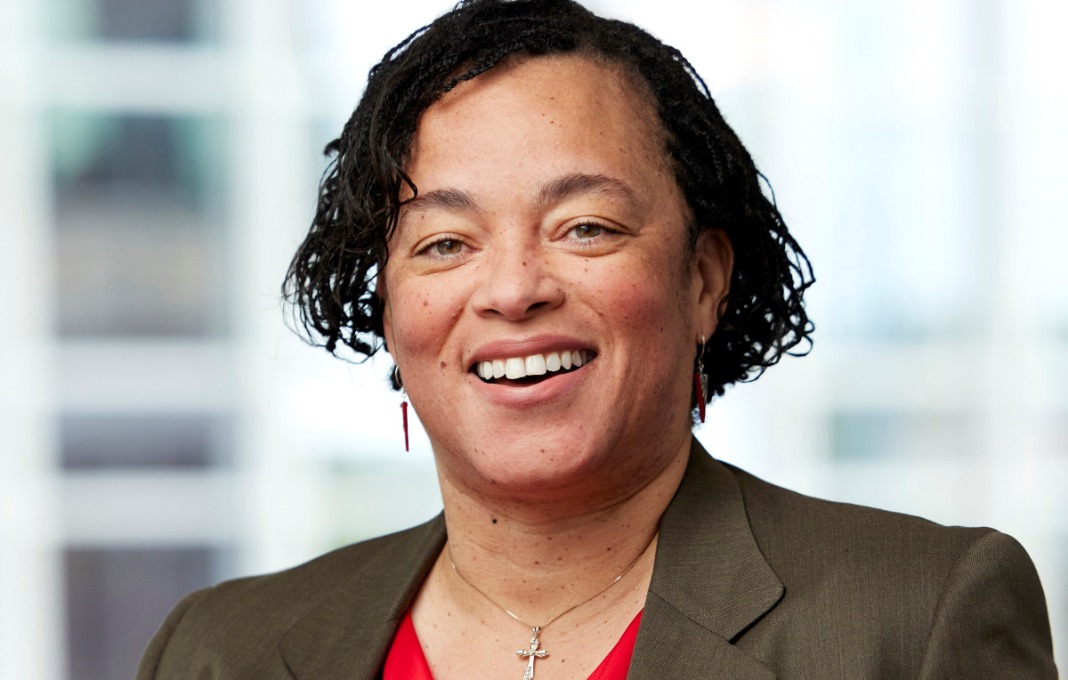Monica Cole’s portfolio of executive responsibilities is vast, so it’s a good thing she can tap into an equally vast pool of life and business experiences for handling them.
As executive vice president and head of agribusiness, food and hospitality at Wells Fargo and a member of the banking giant’s management committee, Cole’s challenges for her largely mid-market clients range from working with restaurants that are still pulling out of the pandemic era to helping Western farmers deal with parched acreage. But against that portfolio, Cole can apply lessons she has forged from engineering, college sports and growing up in a small town in Mississippi as well as her nearly three decades in the banking business and with Wells Fargo.
“Much of my leadership style is from things I learned on the basketball court,” said Cole, who played the sport in college for Christian Brothers University in Memphis “And from the engineering perspective, I learned about taking apart big problems piece by piece—understanding when things are happening, and how, and coming up with a solution. Those critical-thinking skills are important in everything I do, in finding solutions for clients and setting strategies for the business.”
Right now, Cole is helping her clients with stiff tests that are new to many of them: sky-high inflation, fast-rising interest rates and rumblings of recession. At the same time, they’re coping with a labor market that continues to be very tight and with still further detritus from the pandemic.
These disrupters “are the Number One topic with CEOs I’m visiting,” Cole told StrategicCFO360. “Every CFO and every treasurer too is trying to figure out how they fix the costs they have in their business in this rising-interest-rate environment.”
Best Advice
Her best advice stems from the urging to “get into fixed-rate instruments to lock in rates now and for two or three years out. That’s a very good tactic: understanding the difference between fixed-rate and variable-rate debt and making that decision along where you believe rates will be over the next two to three years. At least for the next 12 months, we will be in a rising-rate environment. Inflation is outpacing significantly where the Fed thought it would be.
“The Fed is acting to bring that back down, and companies are making decisions. [Moving to fixed rates] is a prudent course of action for all companies, regardless of where they’re playing.”
At the same time, Cole said, most employers are still having to deal with “supply-chain disruptions that are occurring and the challenge of getting talent into the business. It all plays into how companies are thinking about the decisions they make in this environment.”
For example, she said, in a recent meeting with a client in Miami, there was a discussion about workforce decisions. “Some [young] talent was telling this company that they didn’t understand why they needed to work in an expensive city when they’ve proven they can work from home and be effective,” Cole said. “That puts different pressure and stress on the talent pool. Companies have to be more creative about the type of talent they’re hiring.”
At Wells Fargo, she said, the company thus looks “for people with concentrations in finance and accounting, with experience in banking, and we’re now thinking about what roles and responsibilities we need them to do, and where you can find that skill set in any industry. For companies that are most effective with their pipelines of talent, they’re looking outside the box now.”
For instance, she said, Wells Fargo is searching for risk-management talent among paralegals. “They’re in the law industry, but they might be looking to get into the lending industry, and their skill set” is transferable. Also, military veterans, she said, are “one of the best pools of talent available, and we are 100% focused on skill sets that they can bring into service.”
Cole’s customer portfolio is broad, but one reason she can give effective advice and guidance to a wide range of clients, she said, is that “we break it down into simple parts. All of these businesses have a common intersecting point. If you start at the farm with grains, you have to get it to processors, and eventually it ends up with, say, a beer distributor. All of this interaction is where [Wells Fargo] is most competitive to talk about best practices and what we’re seeing from an economic-impact and marketplace standpoint.”
She also enjoys a “group of sector specialists who focus on data in sectors that date back over the years, so we can get in front of our customers in any economic environment and know what to expect. We really understand the natural intersections where all of these CEOs have a vested interest in efficiency and profitability of the business as well as the quality of supply into that business.”
In agribusiness, for instance, one of the biggest challenges the bank faces with a customer set is farmers in the West, where water availability and overall drought continue worsening. “We’re learning and working with clients on different farming methods, such as dry tilling, particularly in vineyards—using less water,” Cole said. “We also have an internal group focused on ag tech and extending grants to companies looking for ways to better explore agricultural methods so we can feed this country.”
New Models
At the far other end of the food spectrum, Cole’s team also is helping quick-service restaurant operators continue to recover from the pandemic shutdowns and to navigate new business models in their industry. “During Covid, many of them performed extremely well, because more than anyone they adapted to this concept of takeout and delivery pretty quickly,” she said. “For us now, it’s been about how we help them understand financially how their business has to morph from inside dining to better deliver on their strategy, and using technology.”
Also, Cole said, the gaming industry specifically required “grace and leeway to work through” casino shutdowns “from a financial perspective.”
Hailing from Grenada, Mississippi, Cole flourished in high-school basketball and attended Christian Brothers University in Memphis, whereupon she began learning lessons that would help her run Wells Fargo.
“I went from losing only about five games between my junior and senior years of high school to only winning five games in college,” she recalled. “I played power forward at five-foot-11-inches, guarding 6-2 and 6-3 girls. But back then I said, ‘Even if Michael Jordan got on the court with me, I think I’d beat him, though I’d never touch the basketball.’”
Many executives hail how experience in sports helped prepare them for lives of leadership, and Cole is no exception. Her favorite lessons from basketball include: “Put the right talent in positions to be as successful as they can be. Sometimes centers want to be point guards, but they’re just in the wrong position. Same in corporate America: talent can be amazing, but sometimes in the wrong position, where they don’t have the chance to reach their highest level of success. Basketball taught me to really assess that talent and allow them to see how they fit into the bigger game plan.”
Hoops lesson Number Two: the importance of teamwork. “You have five very different positions and skill sets on the floor that have to work together as one to be as effective as they can be. Our businesses are very different functions. On their own, they can be fine, but if you can pull them together seamlessly, we can be amazing. I learned all of that on the court.”
For Cole, her education was a ticket out of a small town and a chance to “make a difference in life for me and my family.” She earned a mechanical-engineering degree from Christian Brothers, which earned her a highly complementary analytical paradigm and skill set to her basketball career.
Cole said she’s also “always naturally been comfortable” with her status as a successful Black woman in engineering and, then, banking. “I’ve felt like through college and most of my career, I’ve always been the ‘only one in the room,’” she said. “I became incredibly comfortable with that inside my own skin.”
Authenticity
Consequently, Cole said, she has embraced one role at Wells Fargo: “to help the company understand how certain things land on me in particular as a black woman. It’s so important to seek representation at all levels of any company and to be able to be your authentic self no matter your background. That’s what makes an organization great.
“That’s the road our company is on, but you never reach utopia. You need to constantly work on it, and the generations constantly change, so it’s important to create a culture with open and transparent dialogue so we can all be successful.”








